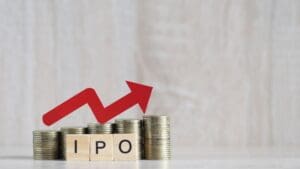Markets are thriving in risk-on fashion today as investors shift their focus from volatile trade developments and lackluster economic data to robust corporate earnings. Indeed, an elevated beat rate and solid outlooks overall are driving a recovery this morning following yesterday’s downbeat ISM-services report, which served to send equities into the red intraday. Apple announcing a $100 billion domestic manufacturing investment is additionally propelling animal spirits. On the geopolitical front, meanwhile, there’s been little progress in talks between Washington and Moscow, and President Trump is seeking to punish nations that are engaging in business with the Kremlin. The most significant reaction so far was adding another 25% tariff on New Delhi due to its purchases of Russian energy supplies and defense equipment, putting the levy at over 50%. Participants are responding to the mix of news by picking up stocks in the vast majority of sectors, buying futures of cyclical commodities ex lumber. Conversely, safe-haven trades are being sold, with volatility protection demand dropping while prices for gold, silver and shares of defensive utilities and healthcare companies fall. The greenback is also taking losses alongside Treasuries while the yield curve shifts north in bear-steepening motion led by the long end. Heavier duration costs are occurring as Wall Street awaits the results from two pivotal auctions this afternoon and tomorrow for 10-year notes and 30-year bonds to the tune of $42 billion and $25 billion.
Apple’s Announcement Helps Sentiment
News that Apple Inc. will invest $100 billion in domestic manufacturing capabilities is also supporting equities today. Similar to trade partners around the globe acquiescing to President Trump’s demands of initiating projects in the states and making cross-border commercial relationships increasingly fair through tariffs, firms are also looking to win over the White House’s favor. For the administration, meanwhile, these successes are seen as huge policy wins that will propel economic growth. Investors appear to be in agreement with the White House’s policies, which is unleashing ferocious animal spirits. Indeed, despite the measures occurring during a weak seasonal period, investor sentiment is being bolstered by robust corporate earnings amidst a constructive outlook for the pace of GDP advancement in the quarters to come.
International Roundup
Retail Sales Reverse from June Decline
Euro area retail transaction volumes climbed 0.3% month over month (m/m) in June, missing the economist consensus estimate of 0.4% but strengthening after falling 0.3% in May. Relative to June of 2024, quantities were up 3.1%, exceeding both the economist consensus estimate of 2.6% and May’s 1.9% year-over-year (y/y) result.
The m/m growth was led by the 0.6% increase of non-food products except automotive fuel, according to Eurostat. Sales of auto fuel in specialized stores climbed 0.4% while food, drinks and tobacco was up 0.2%.
While Construction Freefall Continues
The downturn in construction activity in the eurozone accelerated last month with the HCOB Construction PMI Total Activity Index falling from 45.2 in June to 44.7.
The recent reading is the 39th consecutive print below the neutral mark of 50 and depicts the sharpest drop in five years. In July, the contraction was the most severe in the housing sector, which suffered from weakness with new orders. Firms also reduced their hiring plans and cut back on purchasing input items. Meanwhile, sentiment continued to deteriorate.
UK Construction Also Declines
Eurozone contractors aren’t the only firms to struggle due to a declining industry with the S&P Global UK Construction PMI falling from 48.8 in June to 44.3 last month. Economists expected the result to strengthen to 48.9. July was the seventh-consecutive month of declines in new orders. While weak housing construction contributed to the lower headline, a decline in civil engineering was the most significant.
Australia Industrial Conditions Improve
The Ai Group Industrial Index increased from -11.9 in June to -3.2 in July, hitting a three-year high. New orders and sales improved, but employment fell marginally. In a sign of potential inflation, input expenses and wage costs grew.
Goods production also improved as depicted by the Ai Group Manufacturing Index climbing from -29.3 to -23.9. Manufacturers experienced increased cost pressures, weak demand and policy challenges. Competition from overseas increased was an additional headwind. In another matter, the Ai Group Construction Index improved significantly, moving from -14.9 to -1.3 and reaching its best result since October 2023.
Japan Wage Growth Accelerates
Average cash earnings in Japan jumped 2.5% y/y, which while missing the economist expectation for 3.2% was up from the 1.4% in the preceding month. Meanwhile, overtime pay eased from 1.4% y/y growth to 0.9%.
Disclosure: Interactive Brokers Affiliate
Information posted on IBKR Campus that is provided by third-parties does NOT constitute a recommendation that you should contract for the services of that third party. Third-party participants who contribute to IBKR Campus are independent of Interactive Brokers and Interactive Brokers does not make any representations or warranties concerning the services offered, their past or future performance, or the accuracy of the information provided by the third party. Past performance is no guarantee of future results.
This material is from IBKR Macroeconomics, an affiliate of Interactive Brokers LLC, and is being posted with its permission. The views expressed in this material are solely those of the author and/or IBKR Macroeconomics and Interactive Brokers is not endorsing or recommending any investment or trading discussed in the material. This material is not and should not be construed as an offer to buy or sell any security. It should not be construed as research or investment advice or a recommendation to buy, sell or hold any security or commodity. This material does not and is not intended to take into account the particular financial conditions, investment objectives or requirements of individual customers. Before acting on this material, you should consider whether it is suitable for your particular circumstances and, as necessary, seek professional advice.




















“while prices for gold, silver […] fall”??